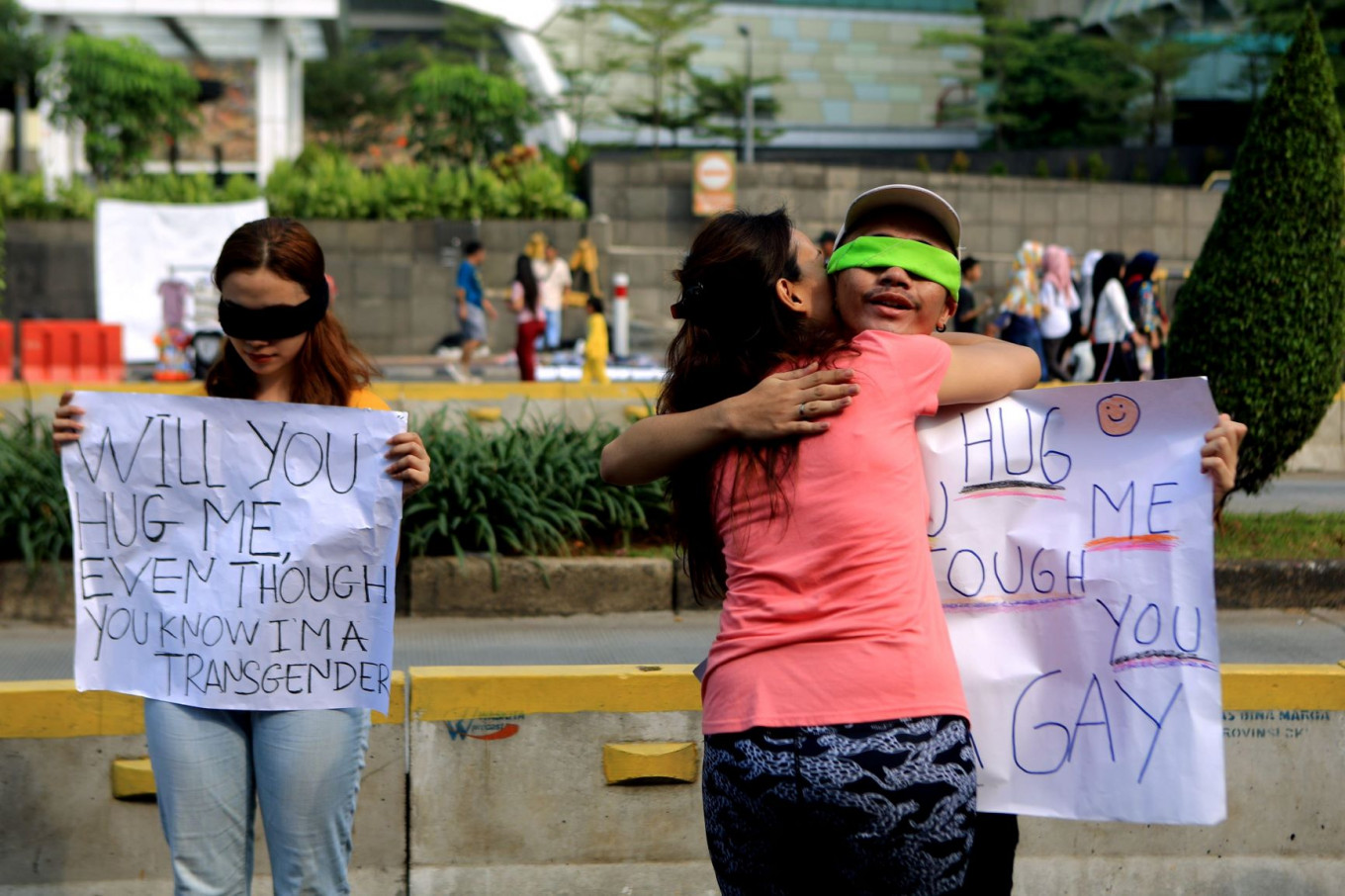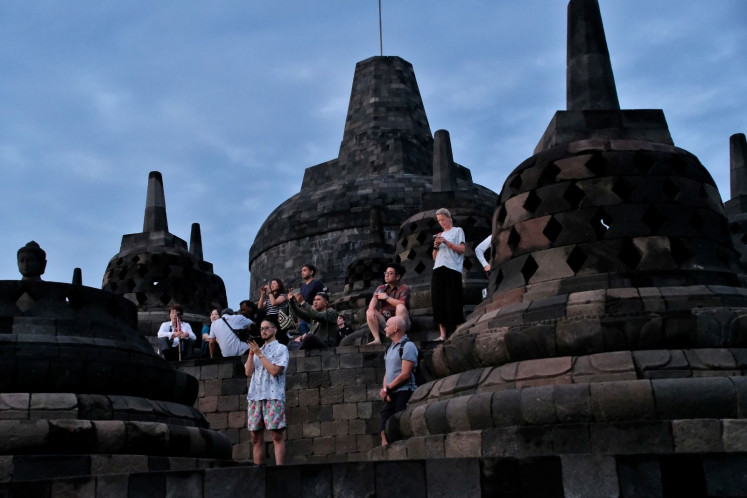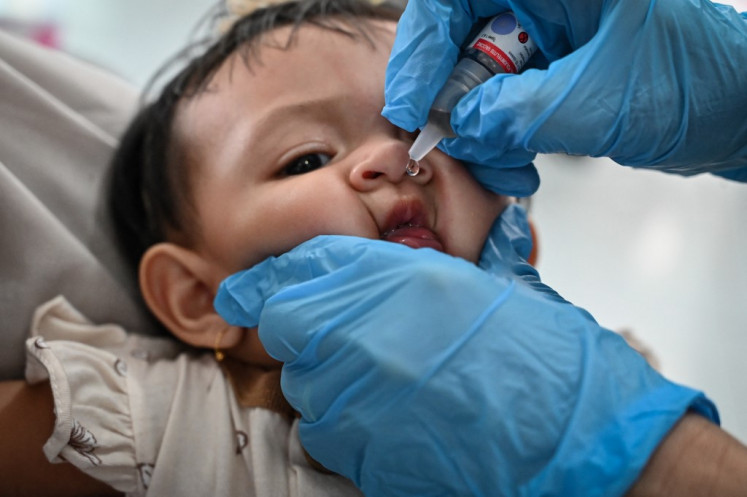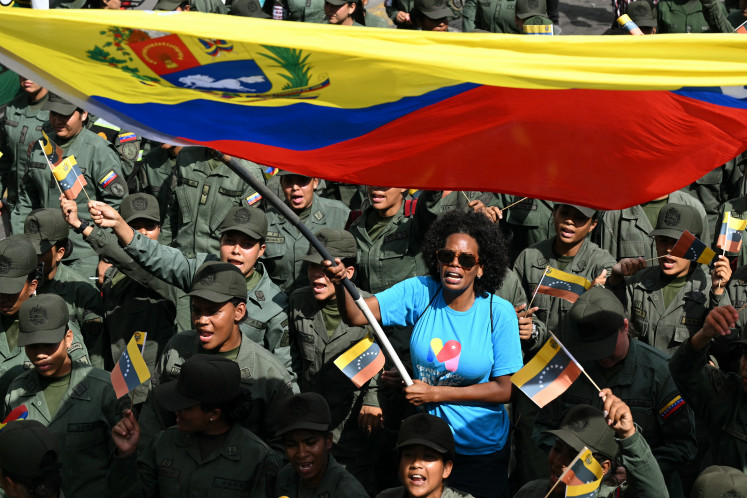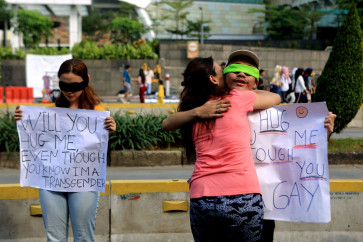Popular Reads
Top Results
Can't find what you're looking for?
View all search resultsPopular Reads
Top Results
Can't find what you're looking for?
View all search resultsUS-ASEAN’s inclusive prosperity overlooks the region’s homophobia
Homosexuality is not illegal in Indonesia, but morality and public unrest have been frequently used to justify raids and arrests.
Change text size
Gift Premium Articles
to Anyone
T
he United States-ASEAN special summit in Washington, DC resulted in a joint commitment in areas of, among other things, health security, maritime cooperation and climate change. The White House announced US$150 million in new initiatives for ASEAN to achieve “inclusive, broad-based prosperity” for a combined 1 billion people.
While the result seems promising, the several mentions of economic inclusivity resemble no more than just political jargon. This is because in Southeast Asia, or in Indonesia to say the least, not all members of society can participate and enjoy economic growth due to ongoing political discrimination.
When US-ASEAN leaders meet in Washington, DC, the lesbian, gay, bisexual and transgender (LGBT) community in Indonesia was frightened by a backlash that started from an interview with a gay couple. The interview, published on the YouTube channel owned by Deddy Corbuzier, a magician-turned-presenter with 18 million followers, quickly escalated into a cascade of threats from conservative religious groups to the community.
Following protests from conservative groups, the video was taken down and the host made a public apology. However, politicians under President Joko “Jokowi” Widodo’s administration have taken this opportunity to discuss a renewed attempt to criminalize homosexuality, one that was suspended in 2017.
Even worse, these politicians blatantly discussed it on Twitter for the public to see, ignoring that a discussion of the sort would further jeopardize the safety of the LGBT community. These politicians have decided it is right to criminalize some of their own taxpayers, instead of ensuring that the community has the same rights like everyone else.
Homosexuality is not illegal in Indonesia, but morality and public unrest have been frequently used to justify raids and arrests. While the national law does not criminalize the LGBT community, discriminatory bylaws targeting them are already in place in four provinces. Hate speech and physical assaults have existed much longer.
National LGBT advocacy group Arus Pelangi has documented 1,850 victims of persecution from state and non-state actors from 2006 until 2018. While the Human Rights Watch reported that 2016 marked a rising in violence against the sexuality and gender minority group. In most cases, homophobia is not only permitted but even sponsored by the state.

